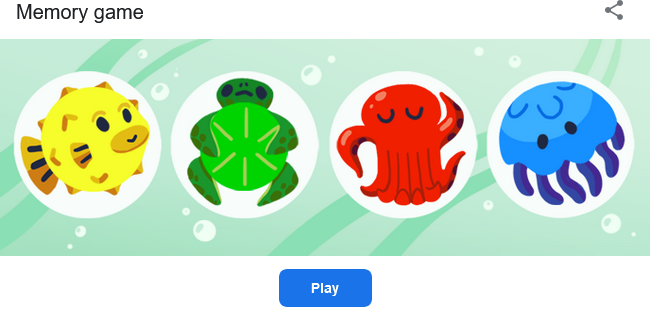
Optimizing Your Website with Google Memory Game Content
In the realm of online entertainment, games have long captured the attention of audiences across the globe. One such engaging and challenging game is the Google Memory Game, designed to test and improve your memory skills while providing hours of entertainment. In this article, we delve into the intricacies of the game and explore how incorporating it into your website can enhance user engagement and contribute to improved SEO rankings.
The Google Memory Game: A Brain-Teasing Delight
The Google Memory Game is a modern adaptation of the classic memory game, where players are presented with a grid of face-down cards that they flip over to find matching pairs. What sets this version apart is its Google-themed imagery, featuring icons and logos from popular Google services like Google Search, Google Maps, Gmail, and more. This unique twist not only challenges players’ memory but also adds a fun and familiar touch to the experience.
Engaging User Experience
Incorporating the Google Memory Game into your website can have a transformative impact on user experience. As users engage with the game, they’re likely to spend more time on your site, leading to increased dwell time – a factor that search engines like Google consider when ranking websites. Longer dwell times signal to search engines that your content is valuable and engaging, thus boosting your site’s credibility and potential for higher search rankings.
Enhancing SEO with Rich Content
One of the cornerstones of effective SEO is producing high-quality, relevant content that addresses users’ needs and interests. By creating an article around the Google Memory Game, you’re not only tapping into a trending topic but also providing valuable information to your audience. This comprehensive piece can include insights into the benefits of memory games, strategies to enhance memory skills, and even the science behind memory improvement.
Keyword Optimization: Elevating Your Rankings
To achieve optimal SEO rankings, it’s essential to integrate relevant keywords strategically throughout your content. In this case, “Google Memory Game” and related terms should be seamlessly woven into your article. Remember, it’s not about overloading your content with keywords, but rather incorporating them naturally to ensure readability while catering to search engine algorithms.
User Engagement and Social Sharing
A well-designed Google Memory Game can become a shareable asset that resonates with your audience. When users find an enjoyable and memorable experience on your website, they’re more likely to share it with their peers on social media platforms. The ripple effect of such sharing can significantly enhance your website’s visibility and potentially attract backlinks, further bolstering your SEO efforts.
Responsive Design for Mobile Compatibility
In today’s mobile-centric world, ensuring your website is optimized for mobile devices is crucial. The Google Memory Game, with its interactive and engaging nature, is a perfect fit for mobile users seeking quick and enjoyable experiences. Implementing responsive design ensures that your game functions seamlessly across various devices, contributing to a positive user experience and potentially boosting your mobile SEO rankings.
Measuring Success: Analytics Insights
Implementing the Google Memory Game on your website isn’t the end of your journey – it’s just the beginning. Utilize analytical tools to gain insights into user behavior, including how often the game is played, average time spent, and bounce rates. These metrics provide valuable feedback that can guide future improvements to the game and other aspects of your website, ultimately leading to enhanced user satisfaction and improved search rankings.

In Conclusion
The Google Memory Game is more than just a form of entertainment; it’s a powerful tool that, when strategically integrated into your website, can drive user engagement and contribute to better SEO rankings. By providing a unique and enjoyable experience, optimizing keywords, and prioritizing mobile compatibility, you’ll position your website to stand out in search engine results and capture the attention of your target audience.


